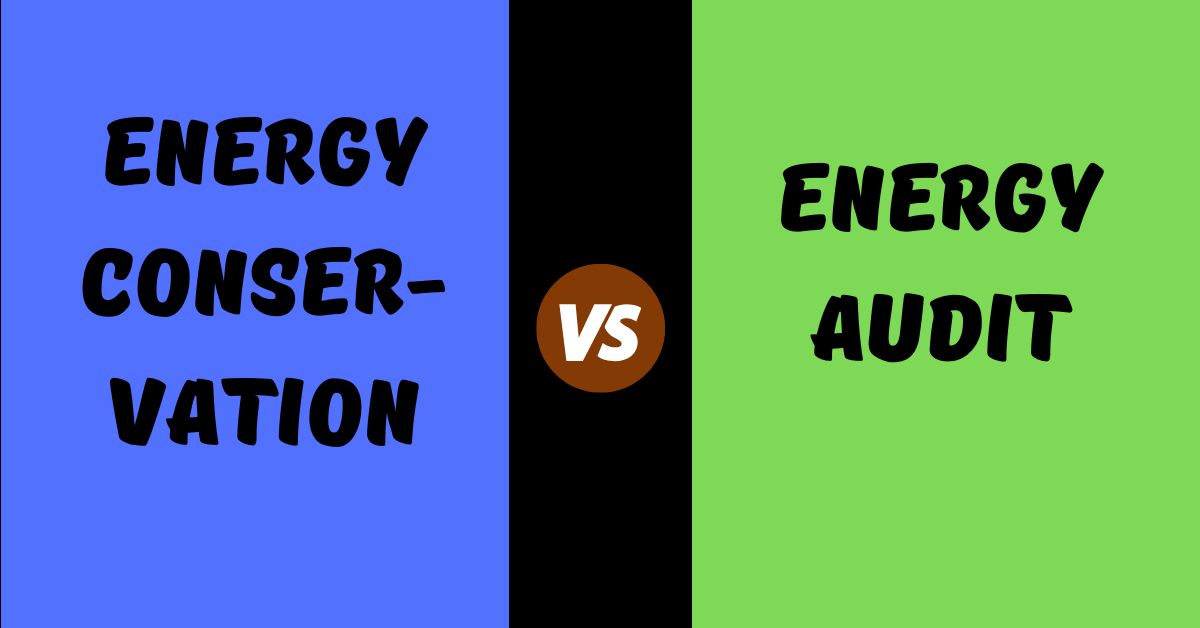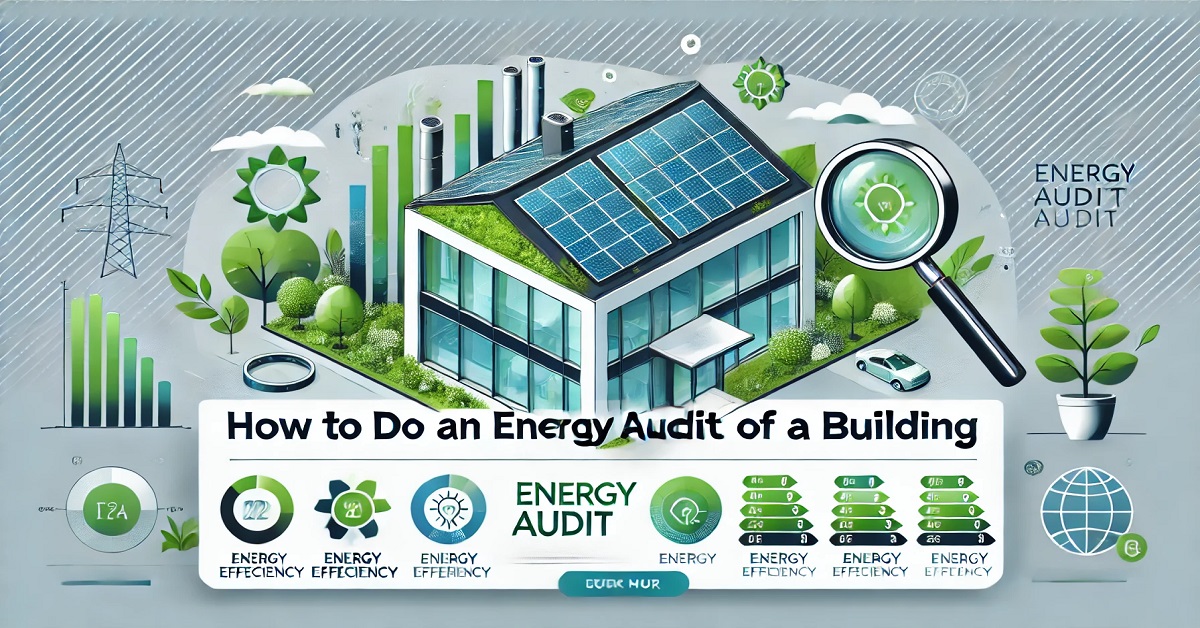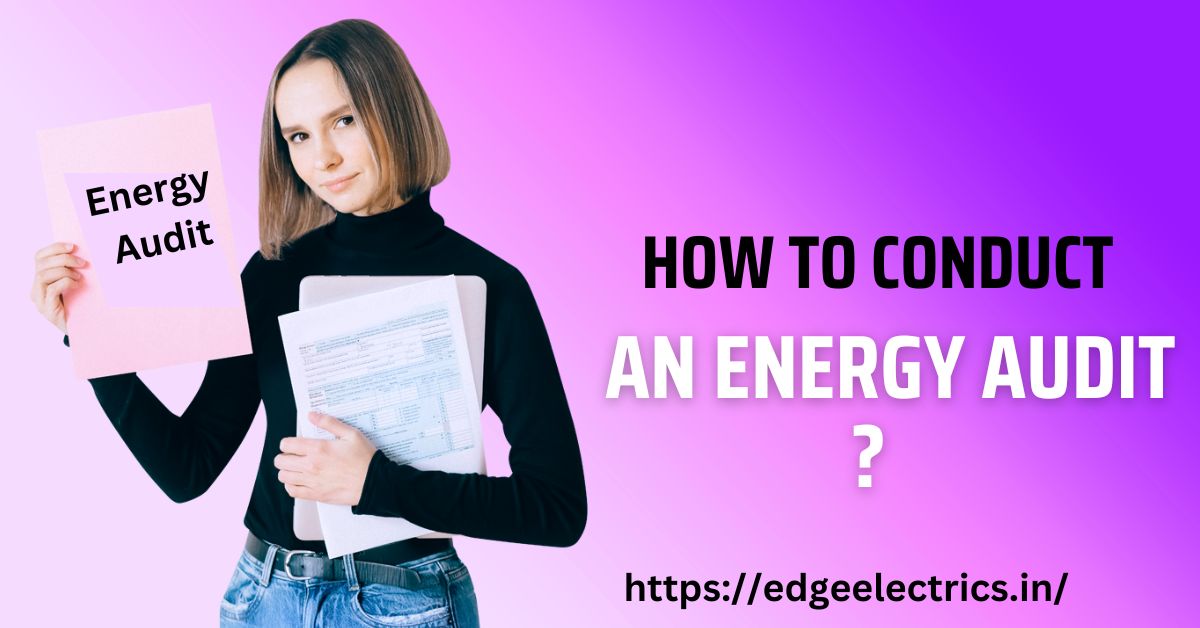
Energy management plays an integrated role in sustainable energy and cost savings in the household, commercial, and industrial sectors. Efficient energy management is the energy conservation and energy audit. Both refer to energy management and aim to reduce energy consumption. However, their objectives, approach, execution, and results defer.
What is Energy Conservation?
Energy conservation refers to the practice of reducing energy use by changing behaviors, adopting energy-efficient habits, and using advanced technology. It focuses on minimizing waste and ensuring that energy is used efficiently without compromising productivity or comfort.
Methods of Energy Conservation
- Behavioral Changes:
- Turning off lights and appliances when not in use.
- Using natural light during the day.
- Adjusting thermostats to optimize heating and cooling.
- Energy-Efficient Equipment:
- Replacing incandescent bulbs with LEDs.
- Using energy-efficient HVAC systems and refrigerators.
- Installing smart thermostats and motion sensors.
- Improved Building Design & Maintenance:
- Enhancing insulation to reduce heating and cooling needs.
- Using double-glazed windows to minimize heat loss.
- Sealing air leaks to prevent energy wastage.
Benefits of Energy Conservation
- Reduces electricity bills and operational costs.
- Enhances sustainability and reduces carbon footprint.
- Extends the lifespan of appliances and systems.
What is an Energy Audit?
An energy audit is a systematic assessment of a building or facility to analyze its energy usage and identify areas for improvement. It involves data collection, analysis, and recommendations for energy efficiency enhancements.
Types of Energy Audits
- Preliminary (Walk-Through) Audit:
- A basic inspection of a building to identify obvious energy inefficiencies.
- Involves checking for air leaks, inefficient lighting, and outdated appliances.
- General Energy Audit:
- In-depth analysis of energy consumption using historical data.
- Involves metering, energy measurements, and identifying cost-effective upgrades.
- Investment-Grade Audit:
- A comprehensive audit for large-scale projects, often used for financial planning.
- Includes detailed ROI calculations, feasibility studies, and implementation strategies.
Process of an Energy Audit
- Review Energy Bills: Analyze past energy consumption trends.
- On-Site Inspection: Assess HVAC systems, lighting, insulation, and equipment.
- Identify Inefficiencies: Use tools like thermal imaging, smart meters, and blower door tests.
- Recommend Improvements: Suggest upgrades like better insulation, LED lighting, and energy-efficient appliances.
Benefits of an Energy Audit
- Identifies hidden energy waste and inefficiencies.
- Provides a roadmap for cost-effective energy savings.
- Improves sustainability and reduces carbon emissions.
Key Differences Between Energy Conservation and Energy Audit
| Aspect | Energy Conservation | Energy Audit |
| Definition | The practice of reducing energy use through behavior, habits, and technology. | A systematic evaluation of energy usage to identify inefficiencies. |
| Focus | Reducing energy waste and consumption. | Finding inefficiencies and suggesting improvements. |
| Approach | Behavioral changes, efficient equipment, and better energy habits. | Inspection, data analysis, and professional recommendations. |
| Implementation | Ongoing lifestyle and operational changes. | One-time or periodic assessment. |
| Tools Used | Energy-efficient appliances, LED lighting, programmable thermostats. | Thermal cameras, smart meters, air leakage detectors, software analysis. |
| Outcome | Lower energy bills and reduced environmental impact. | Detailed report with actionable energy-saving recommendations. |
| Examples | Turning off unnecessary lights, using energy-efficient devices. | Checking for insulation gaps, analyzing HVAC efficiency, identifying high-energy-consuming equipment. |
Conclusion
Energy conservation relates to daily habits and technology designed to minimize energy use. On the other hand, energy audits will identify specific areas of inefficiency and offer a systematic approach for achieving energy savings.
By combining these two skills, households, companies, and industries can cheat on their energy bills, bring efficiency, and lower the carbon footprint, all while beginning toward a safer, more sustainable future.
Want me to add more samples or case studies?
continue reading
Related Posts
An energy audit is a structured methodology that analyzes the […]
An energy audit is a systematic process of assessing how […]



